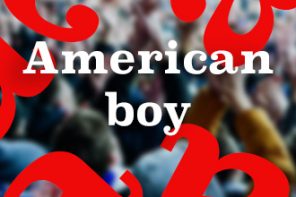£350,000. We all put a price on happiness. A few more hours overtime for a few more square feet? Or a night on the town and a few more stiff drinks?
Not many can see the sums as clearly as David Trezeguet, though.
In late 2011 at the age of 34, the former France striker was in football’s gilded cage. Playing for Baniyas in Abu Dhabi, his bank balance was bloating on a tax-free £1.35m a year. The cachet of being the man to seal France’s Euro 2000 win had translated into cold, hard cash. But after just three months, he tore up his contract to join River Plate – who had dropped into the Argentine second tier for the first time in their history – on a salary worth £350,000 less a year.
His Mr 10% was not 100% happy. “I just want to make it clear that I have no knowledge about his move to River Plate,” said Antonio Caliendo, Trezeguet’s agent. “This is a move the player undertook on his own with his father. I was very happy to bring the player to Baniyas but David decided this was the best move for his career. I disagreed. I don’t want to go further than that.”
Trezeguet had been part of a boy band of strikers that emerged to head France’s attack in the wake of their 1998 World Cup win. While frontman Thierry Henry pouted and preened and Nicolas Anelka sulked, Trezeguet was the doe-eyed drummer in the background, dutifully knocking out a steady stream of goals for Juventus.
He was less theatrical, but hardly less effective. Henry’s Arsenal league goals came at a rate of 0.68 per game (175 in 258 matches), while Trezeguet’s return for Juventus was 0.56 (137 in 245 games). In a nomadic career, Anelka never managed better than a goal every other game at any of his clubs, often scoring a lot less frequently.
When Juventus were torpedoed by the Calciopoli match-fixing scandal in 2006, Trezeguet wasn’t short of options. Liverpool boss Rafael Benitez name-checked the striker as one of the juiciest cuts of carrion on the Old Lady’s carcass. Manchester United and Barcelona also expressed an interest.
During that summer, with a season in Serie B looming, Fabio Cappello and Fabio Cannavaro upped sticks for Real Madrid, Zlatan Ibrahimovic and Patrick Vieira headed to Inter Milan, and Gianluca Zambrotta and Lilian Thuram went to Barcelona. Trezeguet, along with Pavel Nedved, Alessandro del Piero and Gianluigi Buffon, instead chose to stay and lead Juventus back into Serie A at the first attempt.
If that was Trezeguet refusing to jump ship in choppy waters, his decision to leave Abu Dhabi for Buenos Aires was a leap from the first-class cabin into a coracle.
Playing for Baniyas – presided over by the United Arab Emirates deputy prime minister Saif bin Zayed – is as taxing in football terms as it is financially. Former Real Madrid wastrel Royston Drenthe is their current marquee player. His Instagram feed flits from clips of him steaming past hapless opponents in half-filled stadiums to pool parties, casinos and quad bikes.
Baniyas signed Drenthe – a free agent after being relegated from the Turkish top flight with Kayseri Erciyesspor – only after Chinese money gazumped them in their pursuit of Robinho. Trezeguet was their big name in August 2011, but he could only stomach it for three months, playing just six times without scoring a single goal before leaving for “personal reasons”.
It’s a term that can hide a multitude of sins and misfortunes, but it soon became clear that Trezeguet’s motives were more sincere. While many of his international team-mates were sons of France’s historic empire-building, he was a product of football’s own more recent globalisation.
Trezeguet was born in France 1977, but only because his father Jorge – a stylish centre-back – had decided the previous year that it was too dangerous to stay in his native Argentina under President Jorge Videla’s military junta. Jorge secured a transfer to second-tier side Rouen from Estudiantes to escape the dangers of opposing the regime.
Jorge spent three seasons in Normandy before bringing his young family back to Argentina, but that brief stint meant David had a French birth certificate and an Argentine upbringing, complete with a fascination for all things River Plate.
The early years of Trezeguet’s life eased his transit back to Europe and Monaco as an uncapped 18-year-old. The latter stages of his adolescence prompted his escape from Abu Dhabi 16 years later. “Football is passion and I wasn’t getting that in Arabian football,” said Trezeguet on his arrival at his boyhood club. “Being here is a unique feeling, motivated by everything that River represents.”
It was a long way from the Arabian Gulf League and Trezeguet revelled in it. He scored on his debut in January 2012, capping a fine run with a neat finish against Racing. His second match was a Superclasico “friendly” slipped into the calendar to make up for the lack of league meetings between River and Boca Juniors.
Staged away from Buenos Aires, in the northern city of Resistencia, 2,500 police oversaw a 25,000-strong crowd – a ratio of one officer to every 10 fans – amid fears that Boca’s recent Apertura title, combined with River’s relegation, would turn the atmosphere even more toxic than usual.
On the pitch, Trezeguet’s appearance as a second-half substitute could not prevent a 2-0 win for Boca. But he got a true taste of the giddy, rabid rivalry between Argentina’s two most famous clubs. Both sides ended up with 10 men and River’s Alejandro Dominguez, after receiving his second yellow card for abusing the referee, chased after the official and informed his bench that “the son of a bitch is a bostero [Boca fan]” as he left the pitch.
Some feared Trezeguet’s enthusiasm would wane when it came to confronting River’s new reality in the second division, but they needn’t have worried. He scored 13 goals in 19 games in Primera B, including both in the 2-0 final-day promotion-clinching victory over Almirante Brown in front of 50,000 fans at the Estadio Monumental.
As captain, he led the players – wearing t-shirts heralding the club’s “resurrection” – in carrying tearful coach Matias Almeyda from the pitch. “I am feeling things that I have never felt before,” said Trezeguet. “Not with Juventus, nor with Monaco and not even at international level with France. Being a River fan and seeing the passion that exists in this team, all the people and all the pressure, I have more adrenaline than ever before.”
But Trezeguet’s rekindling of a first love coincided with his marriage crumbling. In September 2012 the Argentine gossip columns declared that he was “divorcing for his love of River”. His Spanish wife Beatriz never made the move to Argentina and he revealed after a 1-0 defeat by Racing that he would travel back to Monte Carlo to finalise the terms of their separation after 13 years of marriage.
That upheaval, combined with a knee injury, saw his form suffer. He managed only three goals in 16 games in River’s first season back in the big time, and a year after scoring the goals that clinched promotion, Trezeguet was told he was no longer needed.
Club president Daniel Passarella offered kind words saying Trezeguet was “an example to follow for what he has given to the club in critical times, both as a player and a person” but, to the dismay of many fans, he supported manager Ramon Diaz’s decision.
For the final season of his contract, Trezeguet stayed in Argentina, going on loan to Newell’s where he scored 10 goals in 28 games. Still he pined for one last campaign in the red and white at the age of 36. “Football made me discover another great club, but now I can reach my goal, which was to return to Argentina, to play and to finish my career at River,” he said.
River, however, did not reciprocate. No new contract was forthcoming and a month later, in July 2014, Trezeguet signed for Pune City in the Indian Super League, for one final payday before retirement in January 2015.
Trezeguet’s end-of-career gap year – broadening his horizons back home in Argentina rather than plumping his portfolio – is part of a growing trend in South America, particularly with the financial blow softened by a strengthening economy.
Across town from River Plate, Carlos Tevez has turned down a lucrative offer from Shanghai to fulfil his promise to finish his career with Boca. Former Aston Villa striker Juan Pablo Angel returned to Colombian side Atletico Nacional to play his final season at the club where he played his first. And Ronaldinho saved himself the annual bother of returning late from the Rio Carnival by moving to Flamengo from AC Milan, before spells at Atletico Mineiro – where he won the Copa Libertadores – and Fluminense.
As an articulate former footballer coupled to the gravy train as a Juventus ambassador, there is still plenty of time for Trezeguet build up a retirement nest egg. But when the chance came to invest in the memory bank, he took it, experiencing one of his most rewarding campaigns and writing a sentimental conclusion to a glittering career.





